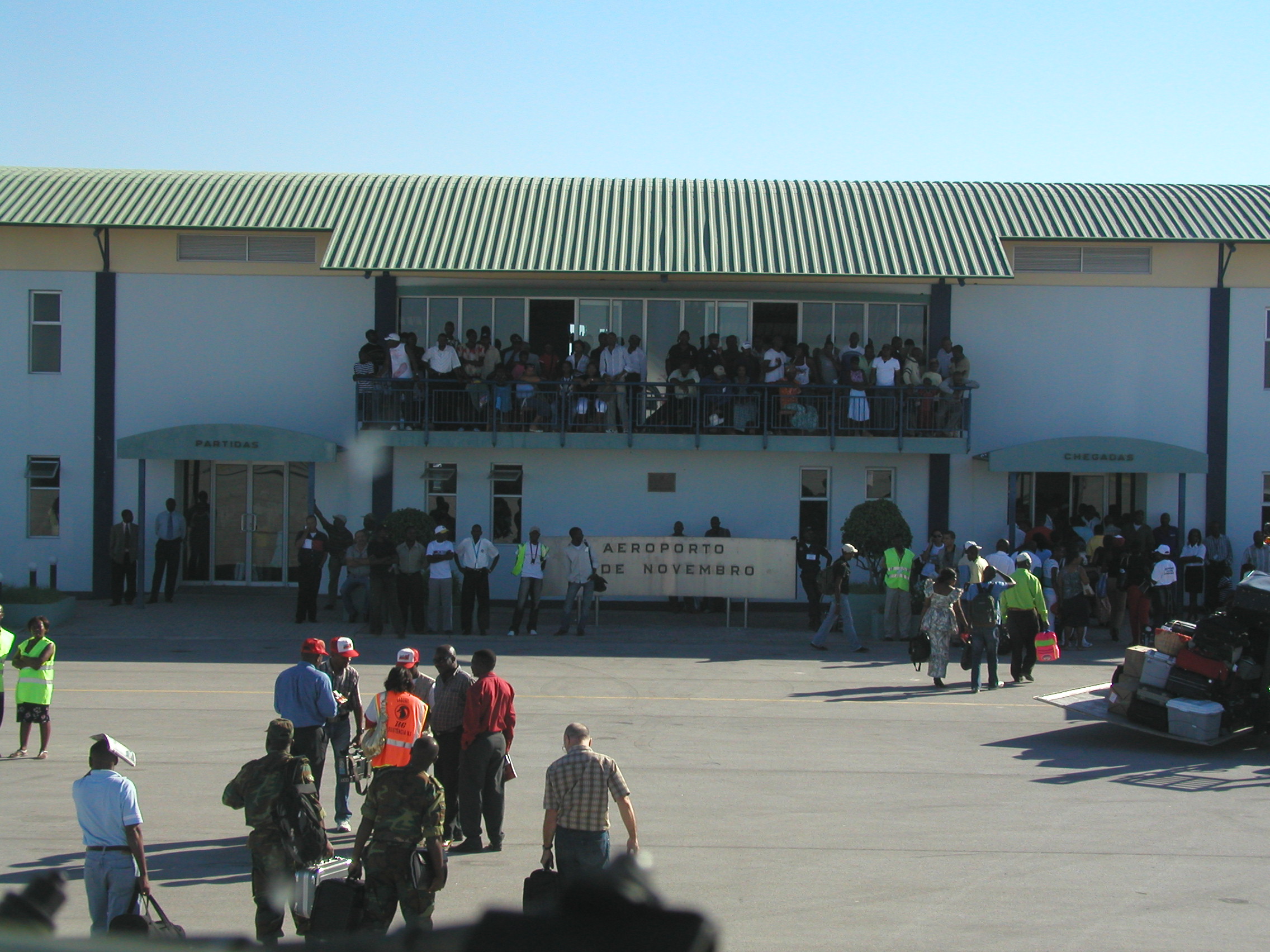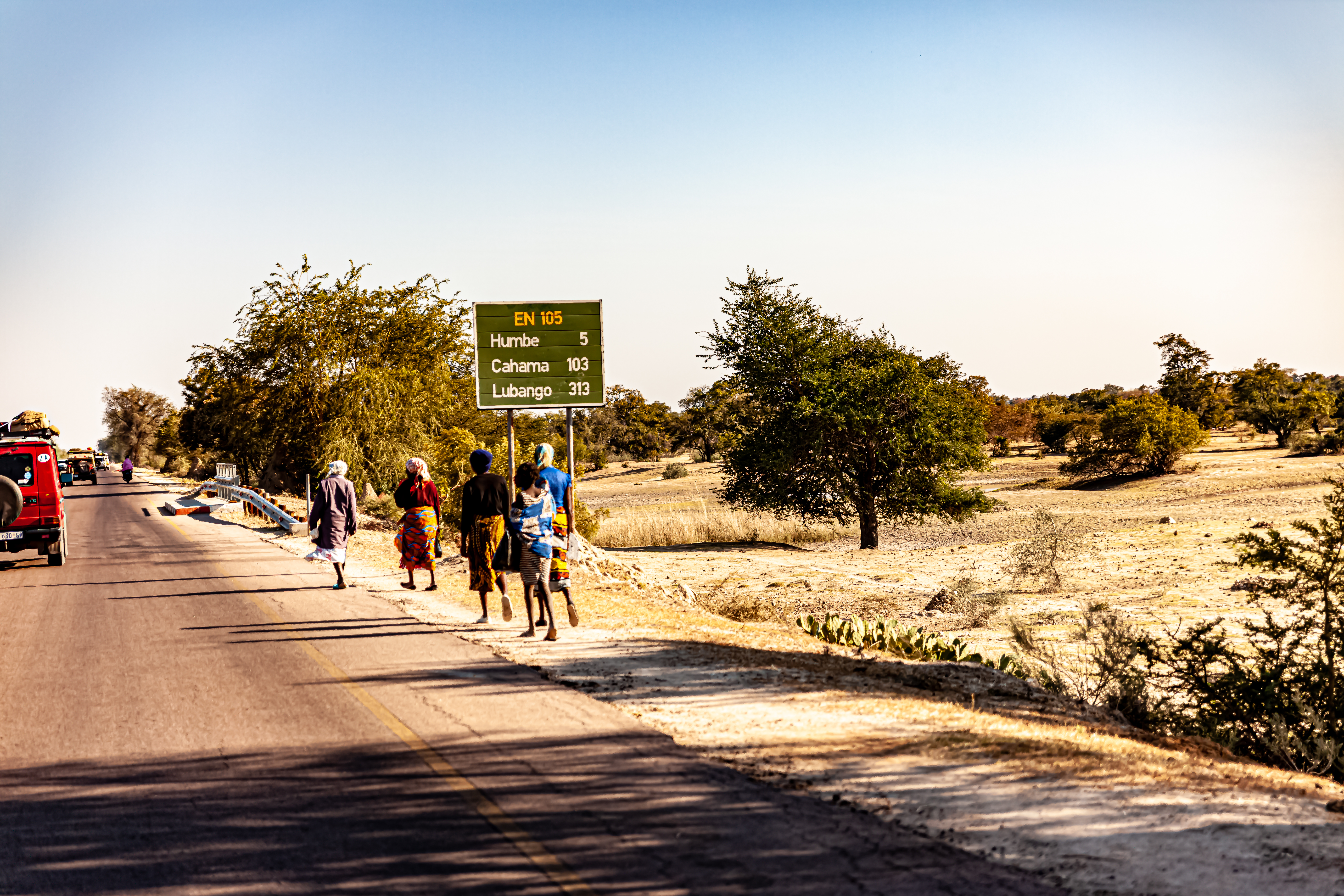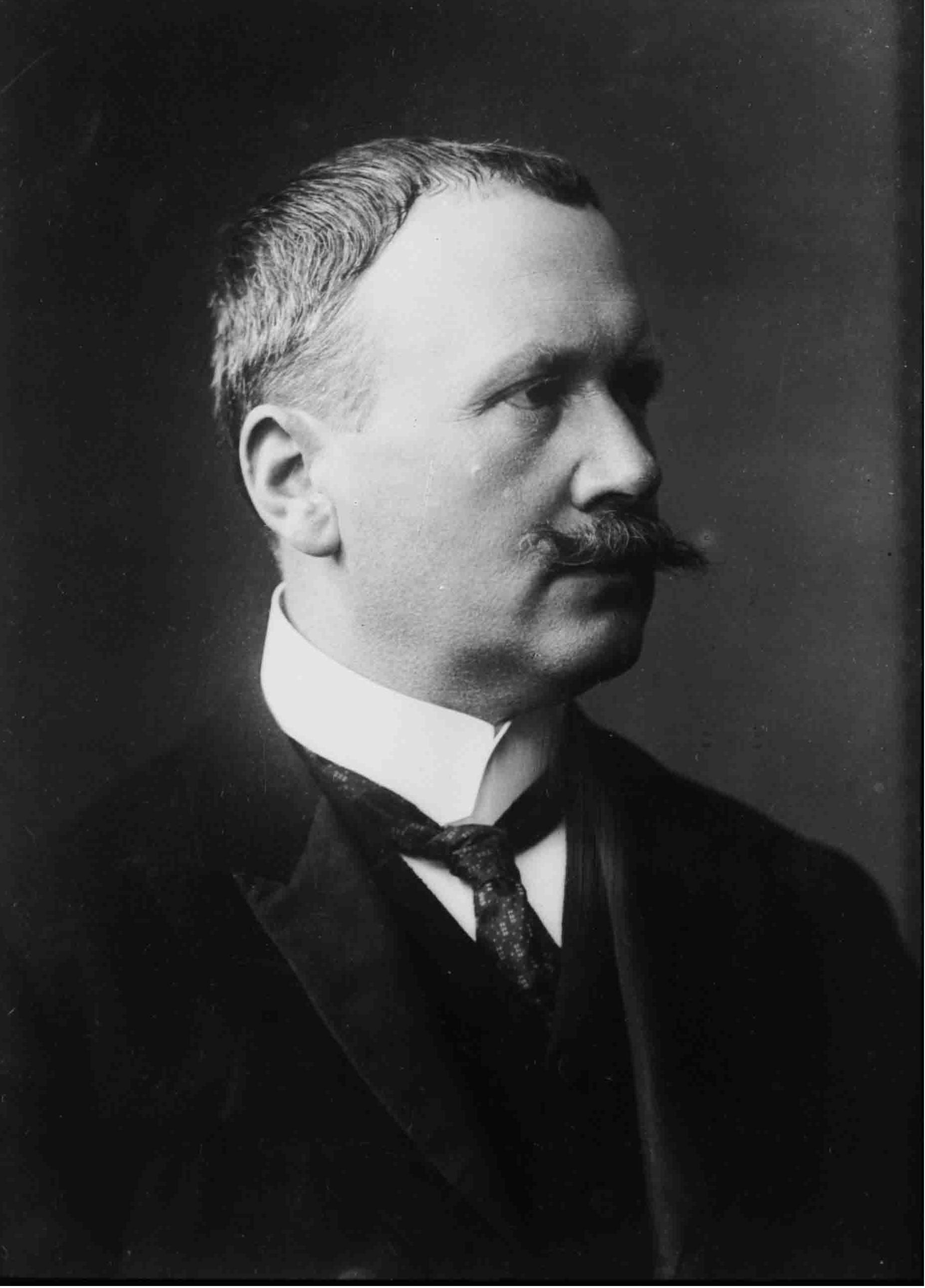|
Ovambo Uprising
The Ovambo Uprising was an uprising against Portuguese Angola, Portuguese colonial rule in World War I. It lasted from about 18 December 1914 to 6 February 1917 with the death of its leader, King Mandume yaNdemufayo, by South African forces in Namibia. The war pitted Portuguese troops, commanded by General António Júlio da Costa Pereira de Eça, against an Ovambo army, composed mainly of fighters from the Oukwanyama clan. Background Before the Scramble for Africa, the area of Southern Angola was owned by the Kwanyama Kingdom. The Berlin agreements of 1884 split the kingdom and the larger Ovambo ethnic group as a whole between two colonial powers, without any say from any from the native people in Angola. However, none of the two powers would attempt occupation or administration for at least two decades. All Portuguese efforts to subjugate the Ovambo were unsuccessful until the conquest of Ombadja, Ombandja in 1907 and Evale in 1912 during the Battle of Mufilo, Portuguese campai ... [...More Info...] [...Related Items...] OR: [Wikipedia] [Google] [Baidu] |
South West Africa Campaign
The South West Africa campaign was the conquest and occupation of German South West Africa by forces from the Union of South Africa acting on behalf of the British imperial government at the beginning of the First World War. Background The outbreak of hostilities in Europe in August 1914 had been anticipated and government officials of South Africa were aware of the significance of their common border with the German colony. Prime Minister Louis Botha informed London that South Africa could defend itself and that the Imperial Garrison might depart for France; when the British government asked Botha whether his forces would invade German South West Africa, the reply was that they could and would. South African troops were mobilised along the border between the two countries under the command of General Henry Lukin and Lt Col Manie Maritz early in September 1914. Shortly afterwards another force occupied the port of Lüderitz. The news about the start of World War I reached ... [...More Info...] [...Related Items...] OR: [Wikipedia] [Google] [Baidu] |
Battle Of Mufilo
The Battle of Mufilo ( pt, Combate de Mufilo) was a battle occurring on 27 August 1907, in the southwest of Portuguese Angola, during the Ovambo Ovambo may refer to: *Ovambo language *Ovambo people * Ovamboland *Ovambo sparrowhawk The Ovambo or Ovampo sparrowhawk, also known as Hilgert's sparrowhawk, (''Accipiter ovampensis'') is a species of sub-Saharan African bird of prey in the famil ... resistance to Portuguese colonization. Bibliography * René Pélissier, ''Les Guerres Grises, résistances et révoltes en Angola (1845–1941)'', Éditions Pélissier, Orgeval, 1978. Mufilo Mufilo Mufilo Portuguese Angola 1907 in Africa African resistance to colonialism {{battle-stub ... [...More Info...] [...Related Items...] OR: [Wikipedia] [Google] [Baidu] |
Ondjiva
Ondjiva, formerly Vila Pereira d'Eça, is a town, with a population of 121,537 (2014), and a commune in the municipality of Cuanhama, province of Cunene, Angola. It is also the administrative capital of Cunene Province and is located at the extreme south of the country. The city is located from the border with Namibia. It was traditionally the seat of the Ovambo king of the Oukwanyama tribe. Ondjiva was greatly affected by the Angolan Civil War (1975-2002). History Mission station The Ondjiva mission station was established first in 1891 by Friedrich Meisenholl and August Wulfhorst of the Rhenish Mission Society, and with the help of Friedrich Bernsmann and with the permission of King Weyulu Hedimbi. They thought that Ondjiva would have been in the territory of German South West Africa, which later turned out not to be the case. The following year they established the mission station of Omupanda. Meisenholl stayed in Ondjiva for some four years, before he had to leave du ... [...More Info...] [...Related Items...] OR: [Wikipedia] [Google] [Baidu] |
Oxford University Press
Oxford University Press (OUP) is the university press of the University of Oxford. It is the largest university press in the world, and its printing history dates back to the 1480s. Having been officially granted the legal right to print books by decree in 1586, it is the second oldest university press after Cambridge University Press. It is a department of the University of Oxford and is governed by a group of 15 academics known as the Delegates of the Press, who are appointed by the vice-chancellor of the University of Oxford. The Delegates of the Press are led by the Secretary to the Delegates, who serves as OUP's chief executive and as its major representative on other university bodies. Oxford University Press has had a similar governance structure since the 17th century. The press is located on Walton Street, Oxford, opposite Somerville College, in the inner suburb of Jericho. For the last 500 years, OUP has primarily focused on the publication of pedagogical texts and ... [...More Info...] [...Related Items...] OR: [Wikipedia] [Google] [Baidu] |
Humbe
Humbe is a town and commune in the municipality of Ombadja, province of Cunene, Angola. It also used to be the location of a Roman Catholic mission station in southern Angola, located ca. 10 km to the north-east of Xangongo, in the tribal area of the Ombadja tribe of the Ovambos. It was located on a tributary of the Kunene River, flowing into this river from the north. Humbe was established in ca. 1882, after the Catholics had made a failed attempt to establish themselves near the Finnish mission station of Olukonda in Ondonga, Ovamboland, in 1879, and in then in Omaruru, Hereroland, further south in South West Africa in 1882. The attempts of the Portuguese to subjugate the Ovambos of Ombadja and Oukwanyama were initially unsuccessful, and 1904 they suffered a massive defeat at the Cunene river. In response, the Portuguese established Forte Roçadas in 1906 in what is now Xangongo Xangongo (pre-1975: ''Vila Roçadas'') is a town, with a population of 35,000 (2014), and a c ... [...More Info...] [...Related Items...] OR: [Wikipedia] [Google] [Baidu] |
Ovambo Region
Ovambo may refer to: *Ovambo language *Ovambo people *Ovamboland *Ovambo sparrowhawk The Ovambo or Ovampo sparrowhawk, also known as Hilgert's sparrowhawk, (''Accipiter ovampensis'') is a species of sub-Saharan African bird of prey in the family Accipitridae. It takes its name from the Ovamboland in northern Namibia. Descriptio ... (''Accipiter ovampensis''), an African bird of prey {{Disambig Language and nationality disambiguation pages ... [...More Info...] [...Related Items...] OR: [Wikipedia] [Google] [Baidu] |
Envelopment
Envelopment is the military tactic of seizing objectives in the enemy's rear with the goal of destroying specific enemy forces and denying them the ability to withdraw. Rather than attacking an enemy head-on as in a frontal assault an envelopment seeks to exploit the enemy's flanks, attacking them from multiple directions and avoiding where their defenses are strongest. A successful envelopment lessens the number of casualties suffered by the attacker while inducing a psychological shock on the defender and improving the chances to destroy them.US Army, ''FM 3-90 (Tactics)'', July 2001, 3-12 An envelopment will consist of one or more ''enveloping forces'', which attacks the enemy's flank(s), and a ''fixing force'', which attacks the enemy's front and "fixes" them in place so that they cannot withdraw or shift their focus on the enveloping forces. While a successful tactic, there are risks involved with performing an envelopment. The enveloping force can become overextended and c ... [...More Info...] [...Related Items...] OR: [Wikipedia] [Google] [Baidu] |
Battle Of Naulila
Naulila was the scene of fighting between Portuguese Angola and German South West Africa during the early stages of World War I. On 19 October 1914, a German military column crossed the border and entered Angola without authorization from the Portuguese authorities. The column was intercepted by Portuguese forces and conducted to Fort Naulila. At Naulila, a dispute occurred between the Portuguese and the Germans which resulted in the death of three German officers. On 31 October, the Germans under the command of Oswald Ostermann retaliated, and raided the Portuguese fort at Cuangar Cuangar is a town and municipality in Cuando Cubango Province in Angola , national_anthem = "Angola Avante"() , image_map = , map_caption = , capital = Luanda , religion = ..., destroying the fort and killing all stationed border guards with machine-guns. This was later referred to as the "Cuangar Massacre". On 18/19 Decemb ... [...More Info...] [...Related Items...] OR: [Wikipedia] [Google] [Baidu] |
Hans Schultze-Jena
Hans may refer to: __NOTOC__ People * Hans (name), a masculine given name * Hans Raj Hans, Indian singer and politician ** Navraj Hans, Indian singer, actor, entrepreneur, cricket player and performer, son of Hans Raj Hans ** Yuvraj Hans, Punjabi actor and singer, son of Hans Raj Hans * Hans clan, a tribal clan in Punjab, Pakistan Places * Hans, Marne, a commune in France * Hans Island, administrated by Greenland and Canada Arts and entertainment * ''Hans'' (film) a 2006 Italian film directed by Louis Nero * Hans (Frozen), the main antagonist of the 2013 Disney animated film ''Frozen'' * ''Hans'' (magazine), an Indian Hindi literary monthly * ''Hans'', a comic book drawn by Grzegorz Rosiński and later by Zbigniew Kasprzak Other uses * Clever Hans, the "wonder horse" * ''The Hans India'', an English language newspaper in India * HANS device, a racing car safety device *Hans, the ISO 15924 code for Simplified Chinese script See also * Han (other) *Hans im Glüc ... [...More Info...] [...Related Items...] OR: [Wikipedia] [Google] [Baidu] |
Outjo Constituency
Outjo is an electoral constituency in the Kunene Region of Namibia. Its district capital is the town of Outjo, its population was 8,947 in 2004. , it has 9,197 registered voters. Politics The Namibian local and regional elections, 2015, 2015 regional election was won by Johannes Antsino of the South West Africa People's Organization, SWAPO Party with 1,774 votes, followed by Magrietha Peter of the United Democratic Front (Namibia), United Democratic Front (UDF) with 1,063 votes. Independent candidate Uaundja Mazenge finished third with 355 votes, followed by John Kelly of the Democratic Turnhalle Alliance (DTA) with 273 votes and Ismael Frans of the Rally for Democracy and Progress (Namibia), Rally for Democracy and Progress (RDP) with 87 votes. Antsino was re-elected in the 2020 Namibian local and regional elections, 2020 regional election, the only constituency in Kunene that SWAPO won. He received 1,059 votes. The independent Mazenge came second with 560 votes, followed by Willi ... [...More Info...] [...Related Items...] OR: [Wikipedia] [Google] [Baidu] |
Theodor Seitz
Theodor Seitz (Mannheim, 12 September 1863 – Baden-Baden, 28 March 1949) was a German colonial governor. He studied law at the University of Heidelberg. He entered in the service of the Foreign Office and became on 9 May 1907 Imperial Governor of Kamerun. On 28 August 1910, he became Governor of German South West Africa (today Namibia) at Windhoek. At the outbreak of World War I, the colony was invaded by a British-South African force. The outnumbered German troops under command of Victor Franke had to capitulate on 9 July 1915. He remained in captivity until 1919, when all Germans were sent to Germany and the colony was annexed by the British. In 1920 he became president of the German Colonial Society The German Colonial Society (german: Deutsche Kolonialgesellschaft) (DKG) was a German organisation formed on 19 December 1887 to promote German colonialism. The Society was formed through the merger of the (; established in 1882 in Frankfurt) an ... and in 1930 honorary pr ... [...More Info...] [...Related Items...] OR: [Wikipedia] [Google] [Baidu] |
German South West Africa
German South West Africa (german: Deutsch-Südwestafrika) was a colony of the German Empire from 1884 until 1915, though Germany did not officially recognise its loss of this territory until the 1919 Treaty of Versailles. With a total area of 835,100 km², it was one and a half times the size of the mainland German Empire in Europe at the time. The colony had a population of around 2,600 Germans. German rule over this territory was punctuated by numerous rebellions by its native African peoples, which culminated in a campaign of German reprisals from 1904 to 1908 known as the Herero and Namaqua genocide. In 1915, during World War I, German South West Africa was invaded by the Western Allies in the form of South African and British forces. After the war its administration was taken over by the Union of South Africa (part of the British Empire) and the territory was administered as South West Africa under a League of Nations mandate. It became independent as Namibia on 21 ... [...More Info...] [...Related Items...] OR: [Wikipedia] [Google] [Baidu] |



.jpg)


